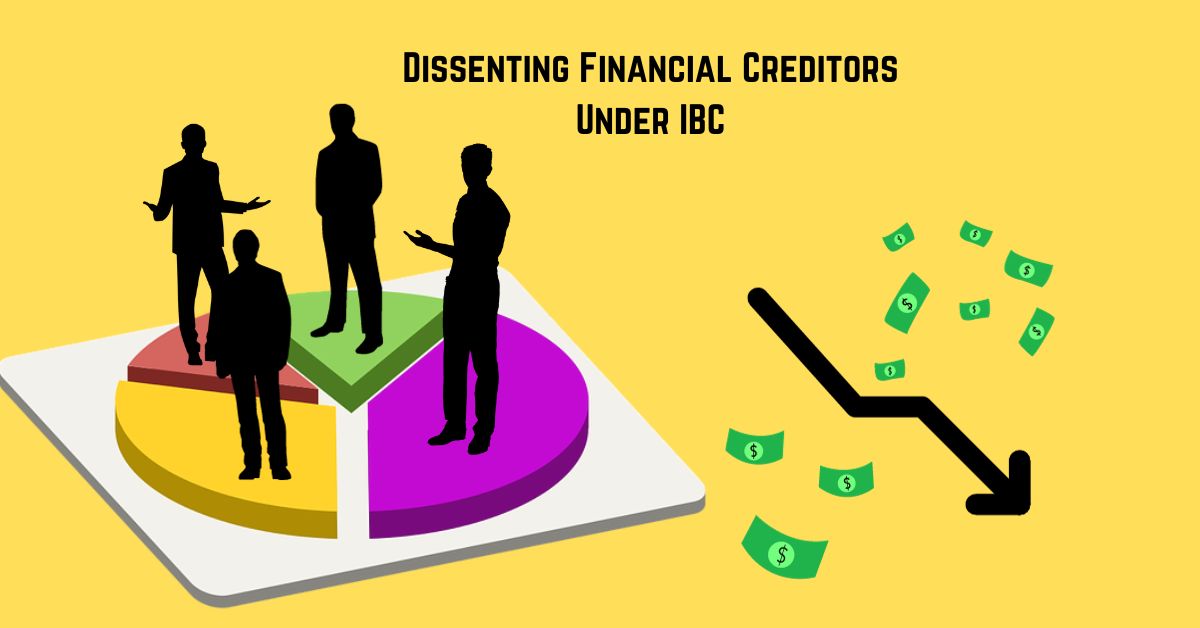Dissenting Financial Creditors under IBC: A Matter for Larger Bench Consideration
Introduction
The Insolvency and Bankruptcy Code (IBC) has been a subject of intense legal scrutiny and interpretation in recent years. One of the most contentious issues pertains to the entitlement of dissenting financial creditors under the IBC.
The Contention: Security Interest of Financial Creditors
A frequently vexed question arises as to the claim of a secured financial creditor either on the basis of the security interest it holds or otherwise. Such creditors, along with workmen, are first in the order of priority under Section 53(1) of the Code. However, what the other creditors would receive also depends upon how the secured creditors are settled.
Divergent Rulings: The Need for Clarification
In Essar Steel (India) Ltd. v. Satish Kumar Gupta, the Supreme Court observed that a secured creditor would be entitled to the value of its security. On the other hand, in India Resurgence ARC (P) Ltd. v. Amit Metaliks Ltd., the Court held that the secured creditor would not be entitled to the value of its security but would receive in proportion to what the others in the same class receive. These rulings seem to contradict one another but according to some legal experts, it is not so.
The CoC’s Role: Exercising Commercial Wisdom
In both cases, the Court proceeded on the premise that in the insolvency regime, the Committee of Creditors (CoC) is entitled to exercise commercial wisdom in dealing with the revival of the ailing corporate debtor and determine what amounts were to be paid to each class of creditors.
Dissenting Financial Creditors : A Position of Compromise?
The Supreme Court in Essar Steel (India) Ltd. v. Satish Kumar Gupta has held that in a corporate insolvency resolution process, as per Section 30(2)(b), a dissenting financial creditor would be entitled to at least what it would receive under Section 53(1) in case of liquidation (i.e., minimum liquidation value). However, the position in corporate insolvency resolution process (CIRP) is much different than that in an insolvency process.
In insolvency process, there is a moratorium in place where there is a freeze on the assets of the corporate debtor and all the financial creditors come together to form the CoC. Approval to a resolution plan by the requisite majority is binding on all the stakeholders including dissenting financial creditors. It is thus, possible that under the approved resolution plan a dissenting financial creditor may not receive the value of the security held by it.
Dissenting Financial Creditors : Court’s Clarification for Larger Bench
The Court also rejected the argument of the respondent that Section 30(2)(b)(ii) is unworkable because it involves deeming fiction relating to liquidation, which is inapplicable during the CIRP period. It noted that the dissenting financial creditor has to statutorily forgo and relinquish his security interest on the resolution plan being accepted, and his position is same and no different from that of a secured creditor who has voluntarily relinquished security and is to be paid under Section 53(1)(b)(ii) of the Code.
“We wish to clarify that Section 53(1) is referred to in Section 30(2)(b)(ii) with the purpose and objective that the dissenting financial creditor is not denied the amount which is payable to it being equal to the amount of value of the security interest. The entire Section 53 is not made applicable,” the judgment authored by Justice Sanjiv Khanna stated.
Since it was taking a contrary view from a coordinate bench’s judgment, the bench said that it is proper and appropriate that the issue is referred to a larger bench. The matter be, accordingly placed before the Hon’ble the Chief Justice for appropriate orders, the judgment stated.
Conclusion: Dissenting Financial creditors under IBC
The entitlement of dissenting financial creditors under the IBC is a complex issue that requires careful consideration. The Supreme Court’s rulings provide some guidance, but the final decision often rests with the CoC. As the law continues to evolve, it will be interesting to see how these issues are resolved in the future.
 Whatsapp
Whatsapp


